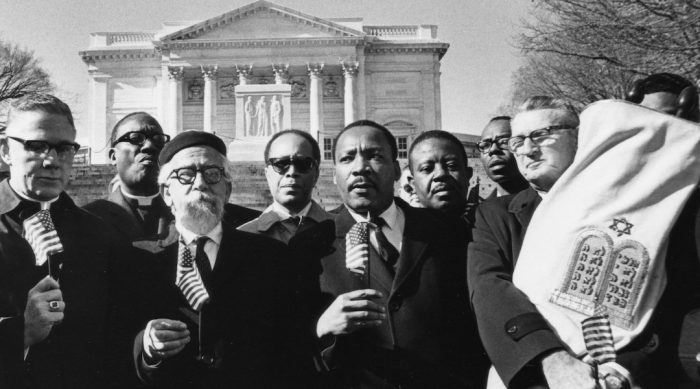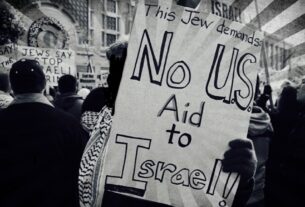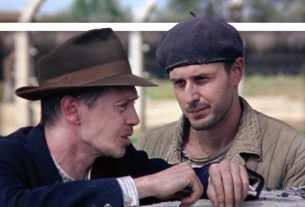“The number of people I have met in my travels, who tell me about how that book opened them up to spirituality, is staggering. Two things about that book are very moving. One is, at a time when American Judaism was about integration and success, Heschel launched this dramatic insistence that Judaism was about the life of the spirit. I think it landed like a bomb for a lot of American Jews. It was totally revolutionary to them. One of the ways that the book has resonated and continues to resonate is that Heschel is rebelling against a culture of technology, and wants to place a stake in the ground for the value of appreciation and gratitude. One of my favorite sentences in all of Heschel is that ‘Mankind will not perish for want of information; but only for want of appreciation.’ That line is from ‘God in Search of Man,’ but I think ‘The Sabbath’ is about Shabbat as a practice of appreciation.
“I also think that people had internalized the Christian, anti-Jewish idea that Christianity was about inwardness and spirituality and Judaism wasn’t. Heschel responds: We gave the world the gift of Sabbath which is about living in the presence of God.”
“God in Search of Man,” part 1 (1955)
(Held calls Heschel’s companion volume to his earlier work “Man Is Not Alone” a “beautiful evocation of what wonder and gratitude look like.”)
“This is Heschel as a phenomenologist: What is it like to have a sense that our lives are not something that we earned and that part of the religious life is to repay this extraordinary gift? He needs to write in a poetic mode, in part, because he’s trying to evoke in his readers a sense of gratitude, a sense of indebtedness, a sense of obligation. What I tried to do in my book is to [delete] sort of argue that amidst all that poetry, there’s an argument: Wonder is what opens the door to obligation. Wonder is about reawakening a sense that all of us, just by the nature of being human, have an intuition that we’re obligated to something and someone.”
“The Prophets,” 1962
(Heschel provides compact profiles of seven biblical prophets and attempts to understand the phenomenon of prophecy in general. Held recommends starting with the chapter titled, “The Theology of Pathos.”)
“Heschel makes the most eloquent case I think any Jew has ever made since the prophets for a God who cares, a God who is stirred to the core of God’s being by human suffering and especially human suffering that stems from oppression. It’s Heschel’s attempt to reclaim the God of the Bible from what he saw as the ravages of abstract philosophy that reduces God to an idea. God is not an idea. God is someone who cares about us. God has a name. There’s this amazing speech he gives to Jewish educators somewhere where he says, ‘I was invited to a conference to talk about my idea of God and I responded to them and said, ‘I don’t have an idea of God, I have God’ — Hakadosh baruch hu [the Holy one, blessed be God] who makes a claim on my life.”
“Religion and Race,” 1963
(On Jan. 14, 1963, Heschel gave the speech “Religion and Race” at a conference of the same name in Chicago, where he became close to King.)
“First of all, you see how Heschel’s theology and his activism are so entirely interwoven: The God who loves the downtrodden, the God who loves widows and orphans, is the God who requires us to stand up and fight for civil rights. It’s also extraordinarily beautiful, in that it combines really interesting biblical interpretation with [theological depth and profound] moral passion. Part of what Heschel and King meant to each other is that each one of them saw the other as a kind of living proof that God had not abandoned the downtrodden — and King was very important to Heschel in the context of the theology of of the Shoah: Martin Luther King embodies the reality that God has not abandoned the world. He really believed Martin Luther King was channeling God, nothing less than that.”
The NBC Interview (1972)
(Shortly before he died at age 65, Heschel recorded an interview with broadcaster Carl Stern. It aired on Dec. 10, 1972, on NBC-TV as an episode of “The Eternal Light,” the long-running religion and ethics show produced in conjunction with the Jewish Theological Seminary.)
“He makes this incredibly beautiful statement about telling kids to live their life as if it were a work of art. Which is just amazing — so beautiful and so simple. And there’s also this really interesting moment where Carl Stern asks him if he’s a prophet and he says, ‘You know, I cannot accept such a compliment. I am not a prophet. I am a child of prophets. But indeed the Talmud says all Israel are the children of prophets.’ I just love that combination of humility and elevatedness. That interview [offers a powerful glimpse of him as a human being, and not just a bunch of words on a page. You see a real person]. is also what makes him actually a human being and not just a bunch of words on a page. You see a real person.”
On Monday, Jan. 16 at 7 p.m. ET, Shai Held will join Arnold Eisen, chancellor emeritus of the Jewish Theological Seminary, for a Martin Luther King Jr. Day conversation reflecting on Heschel’s life, thought and legacy. (Register here for Zoom link.) That same night, at 8 p.m. ET, Yeshivat Chovevei Torah will commemorate Heschel’s 50th yahrzeit with a discussion with his daughter, Susannah Heschel, the Eli M. Black Distinguished Professor of Jewish Studies at Dartmouth College. (Register here.)




